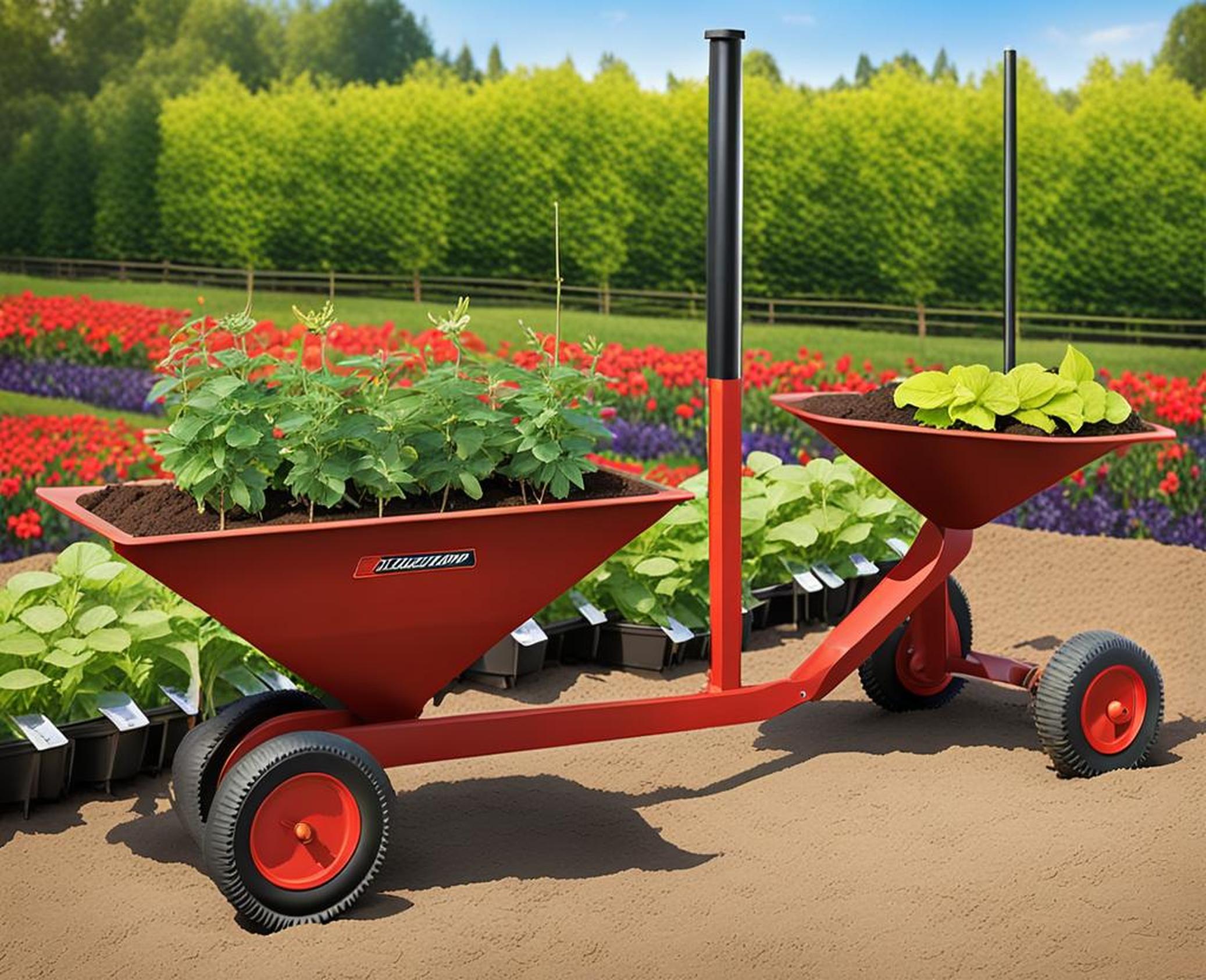For home gardeners and small-scale farmers, hand planting rows of seeds can be a back-breaking, time-consuming chore. Fortunately, seed planters provide a simple solution to automate the planting process while achieving precise seed spacing and depth.
Garden seed drills and push seeders have been around for decades, but recent innovations have made them easier to use and more versatile. Modern seeders allow you to quickly sow lengthy rows of vegetables or flowers with minimal effort.
Key Features of High-Quality Garden Seeders
Durable and Versatile Construction
Seeders designed specifically for home and small farm use are constructed from weather-resistant materials like powder-coated steel. Quality models hold up well to outdoor temperature swings and moisture. Versatile seeders adapt for use in a variety of soile conditions through adjustable furrow openers, seed plates, and press wheels.

Soil Engaging Components
The furrow opener slices into the soil to create a v-shaped trench for depositing seeds. Common types are coulter discs or knife openers. Depth control wheels riding along the surface determine planting depth. The furrow closer kicks soil back over top the seeds and firms it around them using a rear wheel or drag attachment.
Seed Metering System
At the heart of the seeder is the seed metering system which picks seeds up from the hopper and drops them into the furrow at the desired spacing. Precision seed plates have holes located specific distances apart to regulate discharge rate. Singulator mechanisms allow one seed per hole to prevent jamming issues.
Most Popular Walk-Behind Garden Seeders
Hoss Garden Seeder
A robust but basic manually-pushed seed planter. Its heavy-duty steel construction and coulter-tine furrow opener can handle rough soil conditions. Best for direct sowing large seeds with 7 interchangeable seed plates offering multiple spacing options.
Jang JP-1 Seeder
A more precise seeder sporting Japanese engineering. Easy calibration and assembly. Versatile 24-plate seed meter suits small and large seeds alike. Ideal for attentive gardeners wanting enhanced precision and features.
Earthway Precision Garden Seeder
An affordable American-made option sporting precision seed plates with three adjustable seed outlets allowing custom spacing. Ultralight weight but suits only prepared, well-tilled soil.
Key Considerations When Selecting a Garden Seeder
Choosing the right seeder involves factors like garden scale, typical seeds planted, soil makeup, and key required features balanced against budget. Small growers planting a variety large seeds in average soil do well with basic durable mechanical seeders. Market farmers and those planting mainly small seeds need precision calibration.
Getting the Most out of Your Garden Seeder
While garden seeders reduce planting labor, best practices still apply. Prep soil thoroughly before seeding by clearing and raking smooth. Calibrate spacing plates and components to ensure proper seed metering. Stay with the planter during operation to prevent flow interruptions. Conduct periodic spacing checks, and make any calibration tweaks needed as conditions change.
The Future of Garden Seeders
Expect continuing innovation in garden seeders like GPS-guided autosteer functions for tractor-drawn models allowing completely uniform spacing over an entire field scaled to home use. Handheld or even drone seeders paired with smartphones may one day analyze soil conditions and recommend ideal seed distributions in home plots.
Garden seeders automate the planting process through furrow opening, seed metering, and furrow closing in a single pass. Choosing the right style and features for your garden can reap rewards through eased planting labor, faster sowing, and excellent germination rates from precise seed spacing. Take time to evaluate your needs and match them to seeder capabilities before selecting models like the Hoss, Jang, and Earthway seeders tailored for home and small farm use. Your body and seedlings will thank you!
